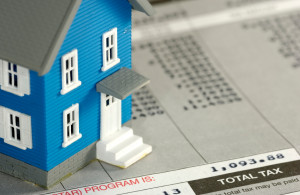 At this time of year, property owners who are unable to pay their tax bill in full are faced with the possibility of incurring expensive penalties and interest, in addition to being in danger of losing their property if the tax bill is not satisfied.
At this time of year, property owners who are unable to pay their tax bill in full are faced with the possibility of incurring expensive penalties and interest, in addition to being in danger of losing their property if the tax bill is not satisfied.
An understanding of the process, coupled with a proactive approach, can save significant amounts of both time and money.
The Process
The property tax process is fairly standard across all Texas counties. On January 1 of each year, a tax lien is attached to your property to secure the payment of all taxes, penalties, and interest ultimately imposed for the year on the property. The tax bill is typically sent by October 1 of each year with the payment due in full by January 31 of the following year. If not paid by February 1, penalty and interest charges begin accruing. Penalties are 12% per annum with interest of 1% per month. In July, collection penalties could be incurred, which could be as high as 15-20%. Please refer to Pages 4 and 5 of the Property Tax Lending Study for examples: Finance Commission of Texas Property Tax Lending Study.
Faced with these steep expenses, a property owner will sometimes panic and a) do nothing at all, or b) allow his tax lien to be transferred to a third party property tax lender.
Be Proactive. There Are Options.
If you find yourself in this situation, it is imperative you understand that there are options. Ignoring the situation will only magnify it. In addition, please be aware that utilizing the services of a third party property tax lender does not satisfy the property tax lien. It only transfers the lien from the taxing unit to the third party. And, while the fees will be different, they may be more expensive. For a sample cost comparison of alternatives, please refer to pages 8 and 9 of the Property Tax Lending Study: Finance Commission of Texas Property Tax Lending Study.
To summarize, if you receive your property tax bill in October and know or suspect that you will not have the funds available to pay it in full by the due date, you should be immediately proactive:
- Pay what you can by the due date and continue to pay what you can.
- Begin working on a solution immediately, so that you could possibly have it in place before February 1 to avoid the first penalty, which is typically 6%.
- If you have a mortgage / loan on your property, you should contact your lender immediately. Non-payment of property taxes is likely an event of default on your loan. In addition, your lender may be able to suggest a solution.
- Contact your tax assessor to see what options are available for a payment plan.
- Consider the cost of each available alternative.
- Follow up with your lender on your proposed resolution. Remember, if you utilize the services of a third party property tax lender, you may still be in default on the terms of your mortgage / loan.
- Put your plan into action.


